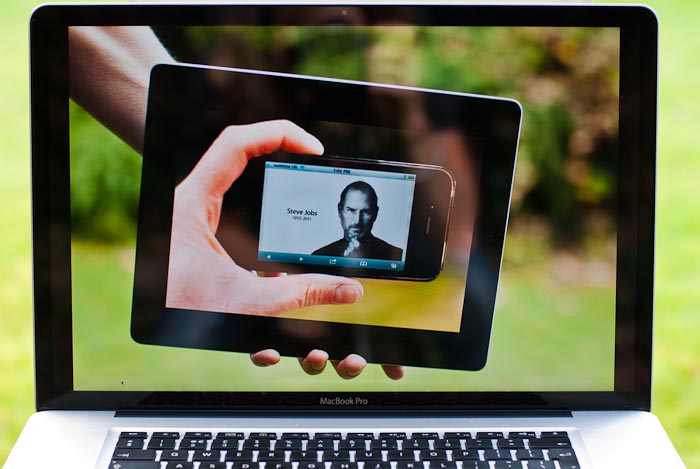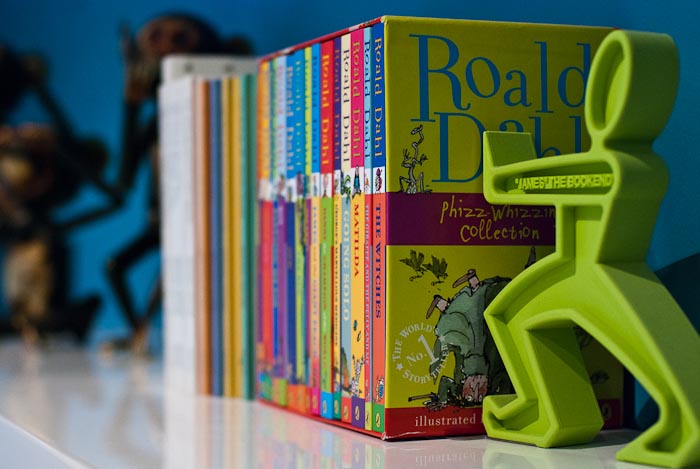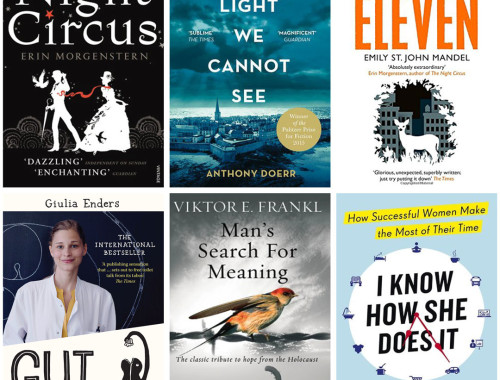I‘ve recently just finished the Steve Jobs biography by Walter Isaacson, probably the longest book I’ve actually finished in some time. As a technology enthusiast and Apple devotee, I found this to be a truly magnificent book. The insight into Jobs’ character and his motivations was fascinating and I enjoyed the history of how the devices I now can’t live without evolved. Whether you’re an Apple user or not, this is an incredible story of a man who transformed the way we consume music, movies, books, and photos.
There were so many aspects of this book that resonated with me as a technology professional and consumer. Here are some of my favorite quotes from the book.
In the early days, he demonstrated the confidence, some would call it arrogance, to get what he wanted, from anyone. Would you call up the CEO of a company you wanted something from? Would your call even get through these days?
He needed some parts that HP made, so he picked up the phone and called the CEO. “Back then, people didn’t have unlisted numbers. So I looked up Bill Hewlett in Palo Alto and called him at home. (p. 17).
I was interested to discover the amount of time Apple focused not just on the product but the packaging. And it shows. I’ve experienced first hand the delight at opening their meticulously crafted boxes.
“People DO judge a book by its cover,” he wrote. “We may have the best product, the highest quality, the most useful software etc.; if we present them in a slipshod manner, they will be perceived as slipshod; if we present them in a creative, professional manner, we will impute the desired qualities.” (p. 78)
I don’t think I realized before reading this book what an eccentric Jobs was. But can you be a genius without a little eccentricity? And, this clearly falls into the “dude, you’re weird” category.
Sometimes to relieve stress, he would soak his feet in the toilet, a practice that was not as soothing for his colleagues. (p. 82)
The graphical user interface is what certainly made computers come to life for me and Jobs notoriously kickstarted this at Apple by using ideas created by Xerox. He then criticized Microsoft for copying Apple’s ideas for Windows. Bill Gates had a different view.
Steve, I think there’s more than one way of looking at it. I think it’s more like we both had this rich neighbor named Xerox and I broke into his house to steal the TV set and found out that you had already stolen it.” (p. 178)
I think anyone who has worked in the corporate world is well familiar with “death by PowerPoint.” I’ve sat through so many PowerPoint presentations where people just read off a slide that someone else created and have little to no understanding of what they’re actually talking about. Jobs couldn’t have been more right to eliminate them.
One of the first things Jobs did during the product review process was ban PowerPoints. “I hate the way people use slide presentations instead of thinking,” Jobs later recalled. “People would confront a problem by creating a presentation. I wanted them to engage, to hash things out at the table, rather than show a bunch of slides. People who know what they’re talking about don’t need PowerPoint.” (p. 337)
The iPod was my first ever Apple device. I wasn’t one of these creative types who’d been using Apple Macintosh for years. I was a PC user, typical corporate PC user. But the iPod changed all that. With the iPod and then the companion iTunes, Jobs created a synergy between the end-user and technology that I had to be part of. Here Jobs explains in my mind why the iPod was so successful.
The older I get, the more I see how much motivations matter. The Zune was crappy because the people at Microsoft don’t really love music or art the way we do. We won because we personally love music. We made the iPod for ourselves, and when you’re doing something for yourself, or your best friend or family, you’re not going to cheese out. If you don’t love something, you’re not going to go the extra mile, work the extra weekend, challenge the status quo as much. (p. 407)
And then there was the iPad. Jobs was steadfast in his belief that no tablet requiring a stylus would succeed. He believed that the tablet wasn’t just a small PC but something else entirely. And I think he was right. No where is this more evident than how my two-year old can navigate around an iPad. He doesn’t need a class or an instruction manual to figure it out. It’s intuitive. It just works. My son will use technology in ways that I never imagined because of innovators like Jobs. And that excites me.
It’s in Apple’s DNA that technology alone is not enough. We believe that it’s technology married with the humanities that yields us the result that makes our heart sing. Nowhere is that more true than in these post-PC devices. Folks are rushing into this tablet market, and they’re looking at it as the next PC, in which the hardware and the software are done by different companies. Our experience, and every bone in our body, says that is not the right approach. These are post-PC devices that need to be even more intuitive and easier to use than a PC, and where the software and the hardware and the applications need to be intertwined in an even more seamless way than they are on a PC. We think we have the right architecture not just in silicon, but in our organization, to build these kinds of products. (p. 527)
Jobs was also steadfast in his belief that Apple own the whole “widget” that they use a closed system where they owned and developed all the hardware and software for their products. In my experience, I’ve used both the open (Microsoft) and closed approach. And I find that I side with Jobs. I’ve done my fair share of tinkering with technology over the years but I just don’t have time for this anymore. I want my technology to work together seamlessly with little effort from me. I don’t want it to get in the way. I’ve got better things to do these days than troubleshoot PC problems or figure out how to integrate the technology I use.
Jobs, belief in an integrated approach was a matter of righteousness. “We do these things not because we are control freaks,” he explained. “We do them because we want to make great products, because we care about the user, and because we like to take responsibility for the entire experience rather than turn out the crap that other people make.” He also believed he was doing people a service: “They’re busy doing whatever they do best, and they want us to do what we do best. Their lives are crowded; they have other things to do than think about how to integrate their computers and devices.” (pp. 563-564)
I love that Jobs knew what I wanted even before I did. That he could somehow see the future and make it happen.
Some people say, “Give the customers what they want.” But that’s not my approach. Our job is to figure out what they’re going to want before they do. I think Henry Ford once said, “If I’d asked customers what they wanted, they would have told me, ‘A faster horse!’” People don’t know what they want until you show it to them. That’s why I never rely on market research. Our task is to read things that are not yet on the page. (p. 567)
The give and take between Apple and Microsoft over the years is one of the strong themes in the book. I find the relationship between these two technology pioneers and the companies they founded complex and intriguing. Microsoft clearly won many of the early battles, owning the business market. But given that Apple now has a market value bigger than that of Microsoft and Intel combined, has Apple ended up winning the war? Toward the end of the book, Jobs tells us how he really feels about Microsoft.
It’s easy to throw stones at Microsoft. They’ve clearly fallen from their dominance. They’ve become mostly irrelevant. And yet I appreciate what they did and how hard it was. They were very good at the business side of things. They were never as ambitious product-wise as they should have been. Bill likes to portray himself as a man of the product, but he’s really not. He’s a businessperson. Winning business was more important than making great products. He ended up the wealthiest guy around, and if that was his goal, then he achieved it. But it’s never been my goal, and I wonder, in the end, if it was his goal. I admire him for the company he built—it’s impressive—and I enjoyed working with him. He’s bright and actually has a good sense of humor. But Microsoft never had the humanities and liberal arts in its DNA. Even when they saw the Mac, they couldn’t copy it well. They totally didn’t get it. (p. 568)
And finally, reflecting on his own mortality in his Stanford University commencement speech. This one just makes my eyes well up.
Remembering that I’ll be dead soon is the most important tool I’ve ever encountered to help me make the big choices in life. Because almost everything—all external expectations, all pride, all fear of embarrassment or failure—these things just fall away in the face of death, leaving only what is truly important. Remembering that you are going to die is the best way I know to avoid the trap of thinking you have something to lose. You are already naked. There is no reason not to follow your heart. (p. 457)
All excerpts from: Isaacson, Walter (2011-10-24). Steve Jobs: The Exclusive Biography. Hachette Littlehampton. Kindle Edition.




